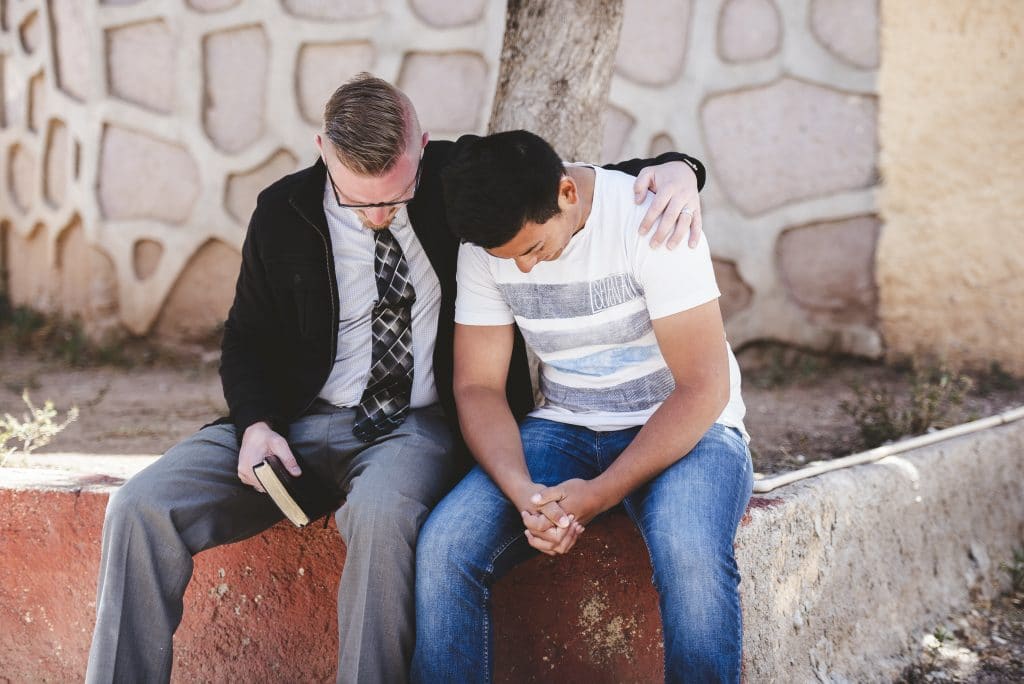Don't Suffer in Silence Any Longer
Free In-Depth
AS FEATURED IN




Widespread Abuse in the Mormon Church
Types of Mormon Sexual Abuse Cases
ABUSE OF AUTHORITY
"FORGIVE" OVER REPORTING CRIMES
SAVING CHURCH REPUTATION, NOT PEOPLE
24-HOUR HELPLINE ABUSE
Mormon Missionaries
They go through communities volunteering and teaching about the Book of Mormon to locals, and frequently get invited into peoples’ homes to chat more intimately. People can even go online and request a missionary to visit them if they are curious about the Mormon Church. However, little do they know they could be welcoming a sexual predator into their homes and lives.
Ward Leader Abuse
Some minors have even reported bishops using minors’ confessions of sexual sins to become aroused, live out sexual fantasies through the youth, or exploit the child’s vulnerability to molest them. Because LDS children are taught to revere their bishop from a young age, some are frightened to speak up if their bishop abuses them due to fear of reprimand or sinning against someone who speaks on behalf of the Church and God.
Boy Scouts of America
Many of the LDS Church’s bishops and ward leaders lead Scout troops or actively volunteered in Scouting programs. Ward bishops even have the task of choosing and supervising Scout leaders in the LDS church. Numerous Scouting troops are sponsored by the LDS Church, as well.
However, claims assert that child sex abuse committed by both Mormon and non-Mormon Scoutmasters and/or volunteers was masked or not reported to the authorities. Allegedly, the Scouts and LDS Church focused on saving the face and reputation of both the BSA and the Mormon Church instead of protecting innocent youth from predators.
Because the Mormon Church and bishops are so involved within the Boy Scouts of America, LDS members who survived sexual abuse in Scouting say the Mormon Church is responsible for knowingly placing minors in danger of molesters and not reporting child sexual abuse to local authorities.
Indian Placement Program
Over the years, increasing sexual abuse allegations have come into the light, each of the cases linked to the ISPP. These cases indicate Native American children placed in LDS foster homes were sexually abused by their Mormon hosts, children in their host family, or elders affiliated with the Mormon Church. In some of the claims, children whose families hosted Native American children were abused by ISPP students.
According to these lawsuits, the LDS Church knew children were being abused in the ISPP but turned a blind eye to the abuse. “They knew there were things going on. They just turned around and closed their eyes to it,” said BN, a former ISPP participant who filed a sexual abuse lawsuit against the LDS Church in 2016.
1981
1982
1985
Date Unknown
2008
2012
Date Unknown
2018
2019
FX’s Under the Banner of Heaven & the
Very Real Connections to LDS Sexual Abuse Cases

Inspired by Jon Krakauer's nonfiction book, FX's new limited series, Under the Banner of Heaven, spotlights the 1984 ritualistic murders of Brenda Lafferty and her 15-month-old daughter at the hands of her fundamentalist brothers-in-law Ron and Dan Lafferty.
While Brenda's murder is at the core of the story, it's not hard to see the connection between the fundamentalist-fueled killings and the recent sex scandals plaguing the Mormon Church.
At the heart of both the Lafferty murder and the sex abuse scandals, there is a deeply rooted history of using God to justify one's actions (or inactions) by invoking the name of God.
Like their fictional counterparts, the real-life Lafferty brothers believed in (what they considered) traditional LDS principles such as polygamy, prophesizing, blood atonement, and anti-government sentiments.
While the Church doesn't teach or condone these practices, both Krakauer and the FX series suggest that today's Latter Day Saints struggle to reconcile with a violent history influenced by the ideals of early prophets.
Both Ron and Dan came to see themselves as prophets, referring to Ron as God's mouth and Dan as the arm of God. This delusional mindset encouraged Ron to prophesied, leading to a message from God the brothers referred to as the "Removal Revelation."
The real-life Laffertys and their dramatized counterparts saw themselves as prophets. Combining fundamentalist idealogy and teachings from early LDS prophets, Ron and Dan justified the murder of Brenda and Erica Lafferty as an act of God's will.
When we look at the events that went down on July 24, 1984, we can see Brenda and Erica's murder was not a revelation from God. It was a senseless revenge killing that became twisted up with a sense of duty and obligation to God's word. As Krakauer points out in his book, "Common sense is no match for the voice of God."
So how does a brutal murder tie into the current sex abuse allegations against the Church?
In FX's dramatized version of the real-life killings, Dan Lafferty quotes the Church's third prophet, John Taylor: "God is greater than the United States, and when the Government conflicts with heaven, we will be ranged under the banner of heaven against the Government."
Both Brenda Lafferty's murder and the current sex abuse allegations center around people who claim to operate "under the banner of heaven." They work for God. The divine drives their actions (or inaction) and, therefore, lacks the need for personal or legal accountability.
When it comes to sexual abuse, the Church operates under this same banner. Leadership prefers to handle it internally rather than through the US Government court systems.

The Church encourages victims and families to report abuse to their local Bishop, a man God has blessed with the power of discernment. Similar to how the Lafferty brothers saw themselves, a man in a bishop's position can make divine judgments in the name of the Lord. The decision is absolute.
After receiving a sexual abuse complaint, Church policy requires the Bishop to call a help hotline that connects to the Church's lawyers.
Designed to protect the Church's interests, their policies regarding reporting abuse victimize survivors twice. First, the abuser, someone usually in a position of authority in the Church, exploits the child, often using religious texts, rituals, and symbols to manipulate them. Then the Church further victimizes them by implementing extensive measures to cover up abuse allegations.
Regarding the sexual abuse allegations, one can't help but ask the same question the FX series' fictional detective, Jeb Prye, asks his church leader.
"What kind of Mormons are you defending?"
The Lafferty brothers went to trial in the 1980s. The courts held them legally responsible for Brenda and Erica Lafferty's murders.
However, thousands of children affected by the decades of sexual abuse that the Church covered up have seen little justice.
Today, The Church of Latter Day Saints continues to fail to protect a fundamental tenant at the core of their faith—the family unit.